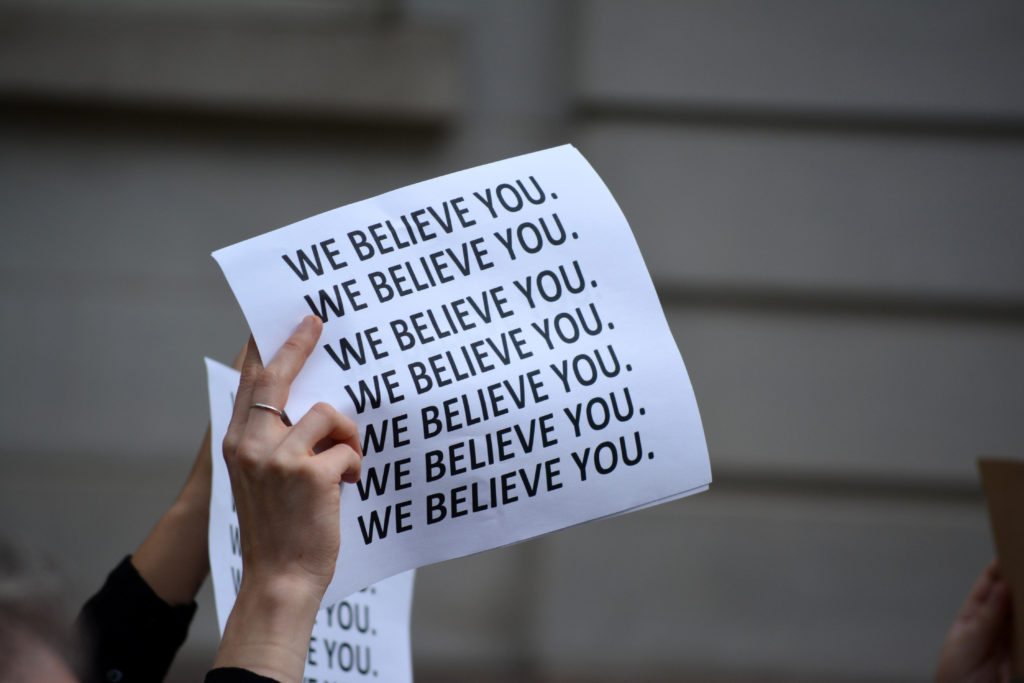
Every 68 seconds, an individual in the US is sexually assaulted.
Survivors of rape, sexual assault, and sexual abuse are individuals of all ages, races, genders, and economic backgrounds. RAINN (Rape, Abuse & Incest National Network), the nation’s largest anti-sexual violence organization, reports that one in six American women and one in 33 American men have experienced an attempted rape or have been raped in their lifetime.
Silent No Longer
For many years, prevailing social norms discouraged rape survivors from reporting their assaults. The overwhelming majority of sexual assault victims know their attackers. Many perpetrators are trusted friends, partners, family members, church leaders, employers, or seemingly upstanding community members. Survivors who reached out to other authority figures, friends, or family members were counseled to keep quiet, made to feel they were responsible and burdened with “protecting the reputations” of their abusers. Staying silent can cause significant negative consequences for survivors, many of whom experience PTSD (post-traumatic stress disorder), depression, and other long-term psychological issues.
Tides Are Turning
Prominent criminal prosecutions like that of musical artist R. Kelly, who was found guilty on nine federal counts of racketeering and sex trafficking, have helped shift the narrative away from victim-blaming and towards justice. Civil suits against prominent church and civic organizations, including Catholic dioceses and the Boy Scouts of America, are exposing massive cover-ups protecting chronic sexual abusers. Survivors of rape and child abuse are calling out both their abusers and the network of others who helped keep their secrets and avoid punishment.
Although only a small fraction of sexual assault perpetrators face criminal consequences, many law enforcement groups and sexual assault prevention organizations are working to change that. As more cases proceed to prosecution, the shift in culture helps empower other survivors of rape, sexual assault, exploitation, and abuse to come forward against their attackers. The #MeToo movement has given a voice not only to survivors of large-scale abusers or abusive organizations but also to individuals to speak out about their own experiences.
According to the Louisiana Foundation Against Sexual Assault (LaFASA), only 40 percent of rapes are reported. The organization is working to change that, expressing its commitment to “empowering survivors, engaging advocates, and changing systems and social norms to end sexual violence in Louisiana.” It offers support to survivors of sexual assault and can help them feel safe enough to speak up rather than remain silent. Other organizations and resources in the New Orleans metro area also provide counseling, medical, and support services to report a rape and pursue justice.
Don’t Let Your Abuser Silence You—Speak Up About Rape, Abuse, and Sexual Assault
Survivors of rape, sexual abuse, or sexual assault may be able to recover compensation from organizations or establishments that covered up abuse or contributed to creating an unsafe environment. Civil lawsuits against churches, employers, and other organizations have enabled survivors to recover compensation and seek justice. To learn more, contact the experienced and compassionate attorneys at the Lamothe Law Firm for a confidential discussion about your situation.









